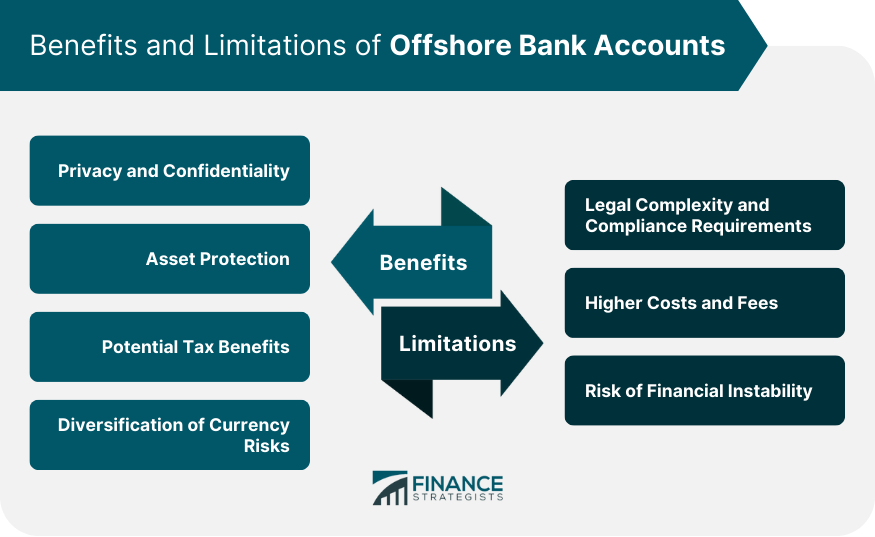What Happens if Offshore Company Formations Fail to Meet Compliance Rules?
Wiki Article
Understanding Offshore Firm Formations: A Comprehensive Guide to the Process and Advantages
Offshore business formations offer a critical opportunity for entrepreneurs looking for to optimize their service operations. These entities typically offer benefits such as tax obligation benefits, raised privacy, and durable property security. Understanding the ins and outs of selecting a jurisdiction, the formation process, and conformity requirements is vital. As the landscape of global business advances, the ramifications of establishing an overseas company warrant careful factor to consider. What actions should one take to browse this complex terrain?What Is an Offshore Company?
An overseas firm is a service entity incorporated outside the jurisdiction of its proprietors' house, typically in a country with favorable regulatory and tax obligation settings. These business can offer numerous objectives, consisting of property security, international trading, and wide range monitoring. They are normally established in territories known as tax havens, where business tax rates are low or missing, and privacy regulations are strict.Offshore companies might be possessed by individuals or other corporate entities and can operate in various markets, consisting of consulting, shopping, and finance. While they use particular benefits, the regulatory and lawful frameworks governing overseas firms differ substantially by territory. Company owner need to navigate these complexities to ensure conformity with both worldwide and regional laws. Comprehending the structure and feature of overseas firms is vital for individuals considering this option for business procedures or possession management.
Advantages of Developing an Offshore Company
While the choice to create an offshore business may originate from different tactical factors to consider, the prospective advantages are engaging for lots of entrepreneur. One significant benefit is tax optimization; many overseas territories supply favorable tax rates or even tax exemptions, enabling firms to maintain even more revenues. Additionally, overseas business usually supply boosted personal privacy defense, securing the identities of investors and supervisors from public analysis.

Last but not least, company owners might discover operational versatility, as overseas jurisdictions frequently have less governing hurdles, making it possible for structured management and administration. Jointly, these benefits make overseas firm formations an eye-catching choice for lots of seeking to increase their business perspectives.
Choosing the Right Territory
Choosing the suitable jurisdiction for an offshore firm is a crucial step in maximizing the advantages described previously. Various elements affect this decision, consisting of tax obligation policies, business regulations, and the total organization setting. Territories such as the British Virgin Islands, Cayman Islands, and Singapore are frequently favored for their beneficial tax programs and durable legal frameworks.It is very important to take into account the details needs of the organization, such as personal privacy requirements and governing conformity. Furthermore, the simplicity of working, including the efficiency of firm enrollment and banking facilities, plays a substantial role.
Possible proprietors should also evaluate the political security and reputation of the chosen jurisdiction, as these components can affect long-lasting success. Inevitably, complete research study and specialist consultation are recommended to ensure placement with the firm's objectives and to leverage the full possibility of overseas benefits.

The Offshore Firm Formation Refine
The overseas company formation procedure entails a series of important steps that call for careful planning and implementation. Initially, people or organizations should select an ideal jurisdiction that aligns with their objectives, thinking about variables such as tax obligation advantages, privacy, and regulatory atmosphere. Following this, the next step entails choosing the ideal business structure, such as an International Service Business (IBC) or Limited Obligation Company (LLC)As soon as the framework is established, required files, including an organization strategy, identification, and evidence of address, should be prepared. Involving a credible local agent or service copyright can simplify this phase, ensuring compliance with neighborhood regulations. After submitting the needed documentation to the relevant authorities, the development procedure typically culminates in the issuance of a certificate of incorporation. This paper establishes the business as a legal entity, allowing it to conduct organization internationally.
Lawful Requirements and Conformity
Understanding the lawful needs and conformity responsibilities is crucial for anybody wanting to develop an offshore company. Each territory has specific laws that need to be followed, which can include firm registration, obtaining necessary licenses, and maintaining local addresses. Offshore Company Formations. It is vital to select a signed up agent who can facilitate communication with neighborhood authorities and guarantee compliance with ongoing coverage requirementsIn addition, lots of jurisdictions call for the submission of yearly economic statements, in addition to tax filings, even if the company does not generate income. Supervisors and shareholders have to be recognized, with due diligence treatments often mandated to confirm their identifications. Failure to satisfy these lawful responsibilities can cause charges or the dissolution of the business. Consequently, prospective overseas business proprietors should talk to lawyers experienced in worldwide company law to navigate you can try this out these intricacies properly and assure full compliance with all laws.
Tax Obligation Implications of Offshore Companies
The tax implications of overseas companies present considerable benefits that draw in lots of entrepreneurs. Understanding the associated compliance needs is essential for steering the complexities of global tax obligation laws. This section will check out both the prospective benefits and the needed obligations connected to offshore service frameworks.Tax Benefits Introduction
Although offshore companies are frequently seen with uncertainty, they can provide significant tax advantages for businesses and people seeking to enhance their financial strategies. One of the main advantages is the possibility for lower company tax obligation rates, which can cause significant cost savings. Numerous overseas jurisdictions supply desirable tax regimens, including no or very little tax obligation on revenues, resources gains, and inheritance. In addition, overseas firms can promote global business operations by decreasing tax liabilities connected with cross-border deals. This structure may additionally make it possible for tax obligation deferral possibilities, allowing profits to grow without instant taxation. Ultimately, these advantages add to boosted monetary efficiency and possession security, making offshore companies an appealing alternative for wise capitalists and entrepreneurs.Conformity Demands Described
Offshore business may present tax obligation benefits, however they additionally feature a set of compliance demands that must be meticulously navigated. These entities undergo particular reporting commitments, which differ substantially relying on the territory. Usually, overseas companies should preserve precise economic documents and send annual financial declarations to conform with local laws. Furthermore, several jurisdictions require the disclosure of valuable possession to battle cash laundering and tax evasion. Failing to abide by these compliance actions can result in extreme charges, consisting of fines and potential loss browse around this site of company licenses. Understanding the regional tax obligation legislations and global agreements is important, as they can influence tax obligation obligations and general functional validity. Involving with economic and lawful professionals is recommended to assure complete conformity.Preserving and Handling Your Offshore Firm
Preserving and taking care of an offshore firm involves adhering to numerous ongoing compliance needs necessary for lawful operation. This consists of attentive economic record maintaining and an understanding of tax responsibilities significant to the business's territory. Reliable management not just guarantees governing compliance however likewise supports the business's financial wellness and longevity.Recurring Compliance Demands
Guaranteeing ongoing compliance is essential for any type of entity operating in the overseas industry, as failure to meet governing demands can result in substantial fines and even dissolution of the company. Offshore companies must abide by local laws, which might include yearly filing of monetary statements, settlement of essential fees, and maintaining an authorized office address. Furthermore, companies are often needed to appoint a local representative or rep to assist in communication with authorities. Regular updates on adjustments in legislation or tax obligation requirements are essential for compliance. Additionally, adherence to anti-money laundering (AML) and know-your-customer (KYC) laws is crucial. By maintaining arranged records and staying notified, overseas companies can assure they stay certified and minimize risks related to non-compliance.Financial Record Maintaining
Efficient monetary record maintaining is vital for the effective administration of any offshore company. Maintaining exact and comprehensive economic documents help in tracking the business's efficiency, guaranteeing conformity with regional laws, and assisting in educated decision-making. Business must apply systematic processes for documenting revenue, costs, and transactions to create transparency and accountability. Using accounting software program can simplify this process, allowing for real-time financial evaluation and reporting. Routinely examining monetary declarations assists recognize patterns, evaluate success, and handle cash money circulation effectively. Moreover, it is important to securely save these records to protect delicate details and guarantee simple gain access to during audits or economic reviews. By focusing on careful monetary document keeping, overseas business can enhance functional effectiveness and support long-lasting success.Tax Obligation Commitments Introduction
Understanding tax commitments is important for the appropriate management of an overseas firm, as it straight impacts financial efficiency and compliance. Offshore companies may undergo different tax obligation legislations relying on their territory, consisting of corporate taxes, value-added tax obligations, and withholding taxes. It is important for entrepreneur to stay educated concerning their tax duties, as failing to comply can cause fines and legal problems. Additionally, several offshore jurisdictions offer tax incentives, which can substantially profit companies if browsed correctly. Involving a knowledgeable tax advisor or accountant specializing in global tax obligation regulation can help guarantee that companies satisfy their obligations while enhancing their tax obligation techniques. Eventually, persistent tax obligation administration adds to the overall success and sustainability read the full info here of an offshore entity.Frequently Asked Inquiries
Can I Open Up a Checking Account for My Offshore Firm Remotely?
The capability to open a checking account for an offshore business remotely relies on the bank's policies and the jurisdiction's policies. Numerous financial institutions use remote services, however certain requirements might vary substantially in between institutions.What Are the Prices Included in Forming an Offshore Firm?
The costs associated with forming an overseas company generally include registration costs, lawful and consulting expenses, and ongoing maintenance fees. These expenses differ significantly based upon territory, complexity of the service structure, and specific services called for.Exist Constraints on Who Can Be a Shareholder?
Constraints on investors vary by territory. Some nations may enforce constraints based on residency, nationality, or company kind - Offshore Company Formations. It's important for potential financiers to research study specific guidelines applicable to their picked offshore locationThe length of time Does the Offshore Business Formation Refine Normally Take?
The overseas firm formation process commonly takes between a few days to numerous weeks. Variables influencing the timeline consist of territory demands, record preparation, and responsiveness of appropriate authorities included in the registration procedure.What Happens if I Fail to Abide By Regional Regulations?
Failure to adhere to local regulations can lead to extreme fines, consisting of penalties, lawsuit, or loss of company licenses - Offshore Company Formations. It may likewise damage the firm's track record and hinder future company chances in the territoryAn overseas business is a service entity integrated outside the territory of its owners' residence, frequently in a country with positive regulatory and tax atmospheres. One significant advantage is tax optimization; many offshore territories supply positive tax obligation rates or also tax exceptions, enabling firms to preserve even more profits. Overseas companies are frequently seen with apprehension, they can offer considerable tax benefits for organizations and people seeking to enhance their financial techniques. Additionally, overseas companies can promote worldwide business operations by lowering tax obligation obligations associated with cross-border purchases. Offshore business may be subject to different tax obligation laws depending on their territory, including business tax obligations, value-added tax obligations, and withholding tax obligations.
Report this wiki page